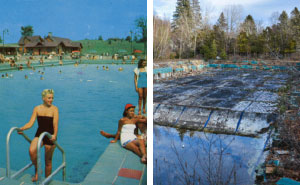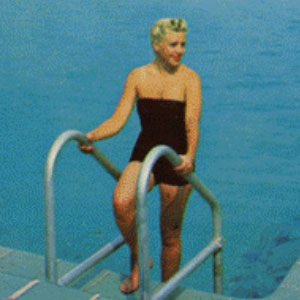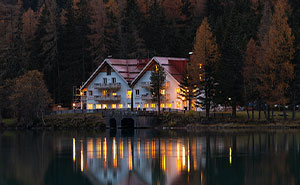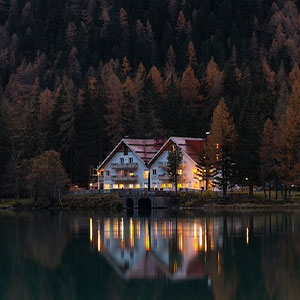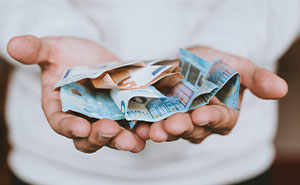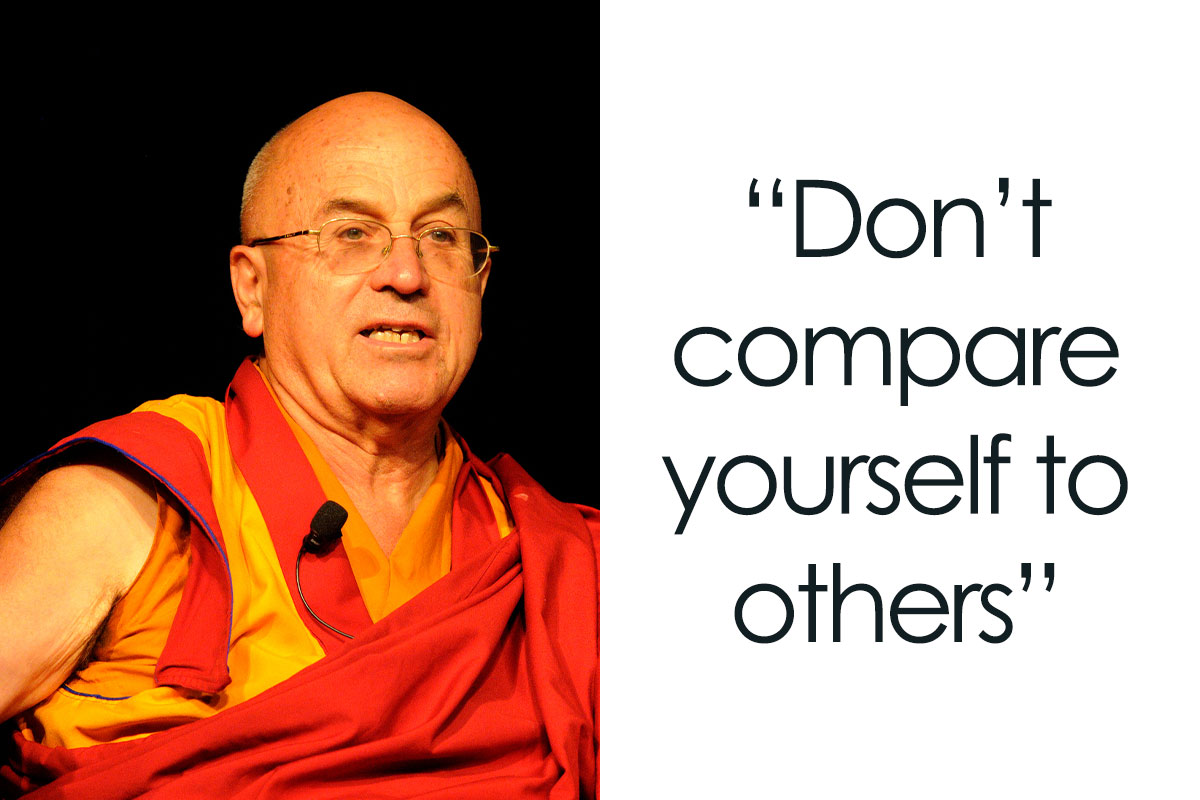
“Happiest Man In The World” Shares 9 Incredibly Simple Yet Effective Tips To Become Happier
Matthieu Ricard, often hailed as "the happiest man in the world," is a remarkable figure whose life and teachings have captivated the world's attention.
With a background as a molecular biologist, the 77-year-old's journey took an extraordinary turn when he left behind a promising scientific career in France to become a Buddhist monk in the Himalayas.
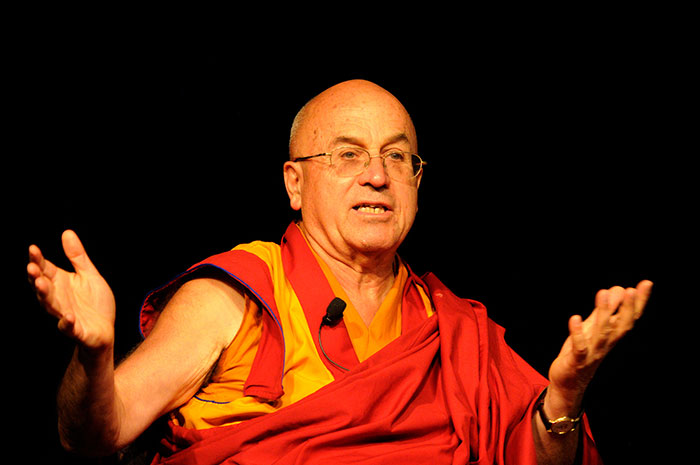
Image credits: Festival of Faiths
Through decades of meditation and the pursuit of inner wisdom, the Aix-les-Bains native has not only found profound personal contentment but has also become a global ambassador for the pursuit of happiness and well-being.
Bored Panda delves into Matthieu’s wisdom to dig out some tips on how to become happier.
This post may include affiliate links.
Know Your Emotions
 Speaking about his 2008 book The Art of Meditation in a video hosted by the charity RSA, Matthieu said: “You can look at your experience like a fire that burns.
Speaking about his 2008 book The Art of Meditation in a video hosted by the charity RSA, Matthieu said: “You can look at your experience like a fire that burns.
“If you are aware of anger, you are not angry, you are aware.
“Being aware of anxiety is not being anxious, it is being aware.”
Matthieu has taught that the better you can distance yourself from your emotions, the more adeptly you can manage them.
As a result, by reducing attachment to feelings, they will gradually dissipate, much like clouds drifting across the sky.
Conversely, by persistently fixating on them, they will accumulate greater influence over time.
In Search of Wisdom: A Monk, a Philosopher, and a Psychiatrist on What Matters Most, which Matthieu co-wrote with philosopher Alexandre Jollien, and psychiatrist Dr. Christophe Andre, the monk, recommended his readers to “sharpen their attention in order to become aware of negative emotions the very moment they arose”.
He said: “It is easier to put out a spark than a forest fire.”
Moreover, Matthieu advised his readers to get to know their emotions better, and training in “distinguishing those that contribute to their well-being and the well- being of others from those that destroy it.”
Enjoy The Simple Things
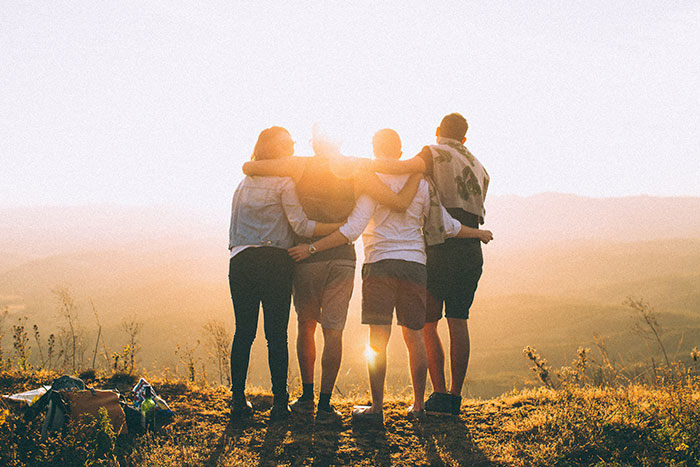 In 2015, Matthieu told Today: “Enjoy a moment at home when you are just sitting quietly, or if you are in the big city and you see all the lights, the blue skies — anything beautiful.”
In 2015, Matthieu told Today: “Enjoy a moment at home when you are just sitting quietly, or if you are in the big city and you see all the lights, the blue skies — anything beautiful.”
Similar to monks, individuals who find joy in life's small pleasures tend to center their contemplations on others.
The French intellect is notable for his personality that radiates tranquility, as he is known to inhabit the serene Himalayan region whilst imparting wisdom about straightforward methods for finding contentment.
Matthieu’s insights frequently elude us as we grapple with the complexities of juggling life and career.
In Happiness, the monk wrote: “We try to fix the outside so much, but our control of the outer world is limited, temporary, and often, illusory.”
Connect With Nature
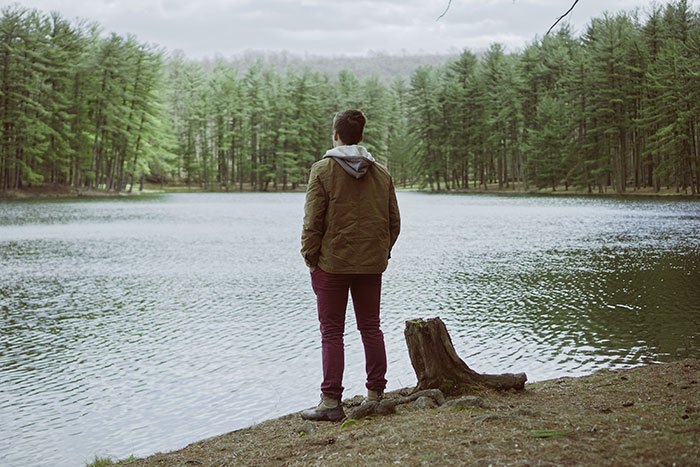 The translator revealed that there exists a profound connection between humans and nature.
The translator revealed that there exists a profound connection between humans and nature.
Matthieu explained that prolonged separation from nature could lead to feelings of depression.
He has reportedly referenced a study wherein hospital patients exhibited faster recovery rates when they had a view of trees and other natural elements outside their windows.
In 2015, the Frenchman was interviewed by the author of Nature's Fortune: How Business and Society Thrive by Investing in Nature, and confirmed his deep and heartfelt love of nature.
“I don't feel very comfortable in cities and I prefer to discover an amazing landscape than to visit some old monuments,” Matthieu said.
He continued: “I have lived in the Himalayas for almost half a century, and they offer plenty of wonders in Bhutan, where I lived for eight years,
“Tibet and Nepal, where I live now. I was also very taken by the raw, savage beauty of Iceland, which I visited last year.”
This is not a revelation- the guy is completely full of BS and just wants to sound profound so that people will listen to him, feed his ego ( oh the irony... ) and buy his books. He talks utter rubbish that any 5 year old could see right through.
Control Your Ego
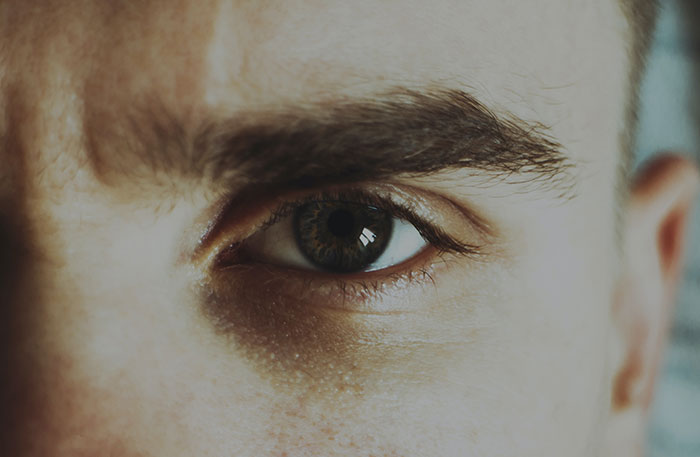 In a 2009 podcast episode of On Being, Matthieu said: “People think a strong ego is a strength.
In a 2009 podcast episode of On Being, Matthieu said: “People think a strong ego is a strength.
“Strong ego is the ultimate vulnerability.
“You are so preoccupied with that strong ego, you can’t sleep anymore.”
Minimizing the ego represents a remarkable avenue toward enhancing your happiness.
Through detachment from one’s ego, a heightened sense of joy and reduced defensiveness emerges.
Consequently, a person may start to place less importance on both praise and criticism.
Meditate
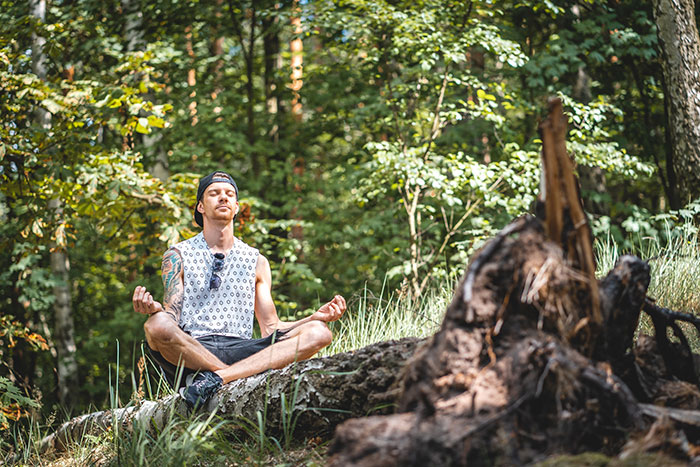 This should come as no surprise; the Buddhist monk spends a lot of his time meditating, and with good reason.
This should come as no surprise; the Buddhist monk spends a lot of his time meditating, and with good reason.
Matthieu said: “Meditation is not emptying your mind or blocking your thoughts and just relaxing.
“That’s bound to fail.”
It revolves more around nurturing thoughts that are loving and kind.
Matthieu has likened it to engaging in a 10 or 15-minute physical exercise routine or any other process that requires a gradual buildup.
He said: “Thoughts will come to the front of your mind and that’s OK, just let them come and go.
“Don’t fixate on them. Don’t run after them. Let them pass.”
After the stressful thoughts dissipate, a person will have the opportunity to inundate their mind with positivity and affection.
I often need time out after being around people. The time can vary in length but I need the peace, quiet and aloneness to do this - with no comms. I call it my recharge time, but I can see it as also being a form of meditation :)
Rid Yourself Of Suffering
 Speaking to The Guardian on Monday, Matthieu explained that our mind can be “our best friend or our worst enemy”.
Speaking to The Guardian on Monday, Matthieu explained that our mind can be “our best friend or our worst enemy”.
The doctorate in cellular genetics elucidated that genuine happiness, which he calls "eudemonia" borrowing from ancient Greek wisdom, springs from the elimination of sources of suffering, such as hatred, pride, and jealousy.
As the monk wrote a book called Happiness, he admitted he originally wanted to call it “Suffering”.
Matthieu said that happiness was “a sort of bonus” that comes from compassion, benevolence, altruism – and it is lasting and stable.
The Guardian’s interviewer resonated with the spiritual man's words: “You can feel it even in moments of grief and regardless of your material circumstances; he calls it “a way of being that pervades”.
This state of being is distinguished from pleasure, which is “perfectly fine, but not happiness”.
"The doctorate in cellular genetics elucidated that genuine happiness, which he calls "eudemonia" borrowing from ancient Greek wisdom, springs from the elimination of sources of suffering, such as hatred, pride, and jealousy." I highly, highly doubt that a doctorate in cellular genetics has anything to do with this.
Become More Altruistic
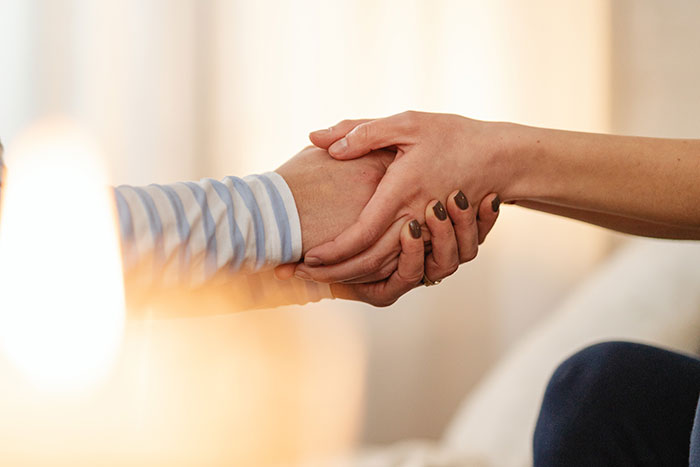 According to Matthieu, incessantly focusing on oneself and the constant pursuit of self-improvement can be draining, anxiety-inducing, and ultimately culminate in unhappiness.
According to Matthieu, incessantly focusing on oneself and the constant pursuit of self-improvement can be draining, anxiety-inducing, and ultimately culminate in unhappiness.
As a result, the answer comes down to altruism. He told The Independent: "It's not the moral ground.
“It's simply that me, me, me all day long is very stuffy.
“And it's quite miserable, because you instrumentalize the whole world as a threat, or as a potential sort of interest [to yourself]."
The Buddhist monk suggested that to attain happiness, one should aim for a state of "benevolence" which not only enhances personal well-being but also fosters positive regard from others.
He explained: "If your mind is filled with benevolence, you know —the passion and solidarity ... this is a very healthy state of mind that is conducive to flourishing.
"So you, yourself, are in a much better mental state.
“Your body will be healthier, so [it] has been shown. And also, people will perceive it as something nice."
That's a very winded way of simply telling someone to be nice to other people instead of focusing on personal desires. Anyone would think he has a book to sell...
Don’t Compare Yourself To Others
 In a 2016 interview with GQ, Matthieu said that comparison was “the killer of happiness”.
In a 2016 interview with GQ, Matthieu said that comparison was “the killer of happiness”.
He said: “We don't compare ourselves with Bill Gates but with our neighbors.”
In his 2003 book, Happiness: A Guide to Developing Life’s Most Important Skill, Matthieu also wrote: “I have also come to understand that although some people are naturally happier than others, their happiness is still vulnerable and incomplete, and that achieving durable happiness as a way of being is a skill.
“It requires sustained effort in training the mind and developing a set of human qualities, such as inner peace, mindfulness, and altruistic love.”
Evaluating our progress in relation to our past achievements can prove highly beneficial when conducted with honesty and self-reflection.
However, when we compare ourselves to others, it often paves the way to discontent. While social comparison can occasionally expose us to unexplored possibilities, its numerous drawbacks include fostering envy, resentment, frustration, and even animosity.
Replace Anxiety With Compassion
 Speaking on the impact of the climate crisis prompting young people to feel anxiety, and how there are 30,000 new lakes in Nepal as a result of global warming, Matthieu said he understood the worries.
Speaking on the impact of the climate crisis prompting young people to feel anxiety, and how there are 30,000 new lakes in Nepal as a result of global warming, Matthieu said he understood the worries.
However, he said that the antidote to this feeling was action.
The wise man told The Guardian: “Act with compassion, then you won’t feel so anxious.
“Do something, generate an attitude and get together.”
Matthieu took part in a research project in 2004 that analyzed his brain as he meditated on compassion.
An electroencephalogram registered unprecedented levels of gamma waves, typically associated with well-being and enhanced concentration.
Additionally, Matthieu’s meditation practice stimulated a specific brain region associated with positive emotions.
Of course he is happy. Free food, shelter, respect and reverence. Thats all that's making him.happy. he doesnt even have to think about family or friends or have a social life. What he is teaching is something he would never practice himself. Its useless to follow him, unless the follower intends to be a monk as well. His advuce aren’t practical for a normal human being. Suppose you are a bank clerk, your productivity will be compared with another clerk, and if they find you less productive they will sack you. Its just as simple as that.
There's a lot of stories confirming what you're saying. That people who felt peace and enlightenment in retreat, sometimes for years, returned to ordinary life and *poof* it was gone and they were back to old tensions and attachments. I do think that Buddhist mindfulness techniques have value, but it's compassionate to acknowledge and validate their limitations to everyday life. I honestly think it's healthier when engaged in the regular world to have some attachment, suffering, ego, emotions as long as there's some balance.
Load More Replies...I don't think I like what this man is putting out into the world. He, or his promoters, is misusing Buddhism for theraputic reasons. The awareness of one's mental state, in Buddhism, is part of the path toward enlightenment, it's NOT medicine for psychic illness, it will not automatically make you happier. I assume he is from the Theravada branch of Buddhism, and if he is, he is going against his teachings by recommending meditation to everyone. In Theravada Buddhism meditation is a monastic practice and should be taught by a teacher. These are all good suggestions if you want to be more enlightened and follow the Buddhist dharma. But it won't magically fix depression, poverty, illness etc. and it took the Buddha to reach Nirvana before he could stand unaffected by things like that.
I don't really understand the first one... I have anxiety..I am aware I am close to full tilt panic... or I am angry and I am aware that I'm about to start throwing s**t...so I'm not anxious or angry anymore because I am aware of those feelings?
Of course he is happy. Free food, shelter, respect and reverence. Thats all that's making him.happy. he doesnt even have to think about family or friends or have a social life. What he is teaching is something he would never practice himself. Its useless to follow him, unless the follower intends to be a monk as well. His advuce aren’t practical for a normal human being. Suppose you are a bank clerk, your productivity will be compared with another clerk, and if they find you less productive they will sack you. Its just as simple as that.
There's a lot of stories confirming what you're saying. That people who felt peace and enlightenment in retreat, sometimes for years, returned to ordinary life and *poof* it was gone and they were back to old tensions and attachments. I do think that Buddhist mindfulness techniques have value, but it's compassionate to acknowledge and validate their limitations to everyday life. I honestly think it's healthier when engaged in the regular world to have some attachment, suffering, ego, emotions as long as there's some balance.
Load More Replies...I don't think I like what this man is putting out into the world. He, or his promoters, is misusing Buddhism for theraputic reasons. The awareness of one's mental state, in Buddhism, is part of the path toward enlightenment, it's NOT medicine for psychic illness, it will not automatically make you happier. I assume he is from the Theravada branch of Buddhism, and if he is, he is going against his teachings by recommending meditation to everyone. In Theravada Buddhism meditation is a monastic practice and should be taught by a teacher. These are all good suggestions if you want to be more enlightened and follow the Buddhist dharma. But it won't magically fix depression, poverty, illness etc. and it took the Buddha to reach Nirvana before he could stand unaffected by things like that.
I don't really understand the first one... I have anxiety..I am aware I am close to full tilt panic... or I am angry and I am aware that I'm about to start throwing s**t...so I'm not anxious or angry anymore because I am aware of those feelings?

